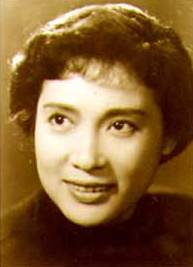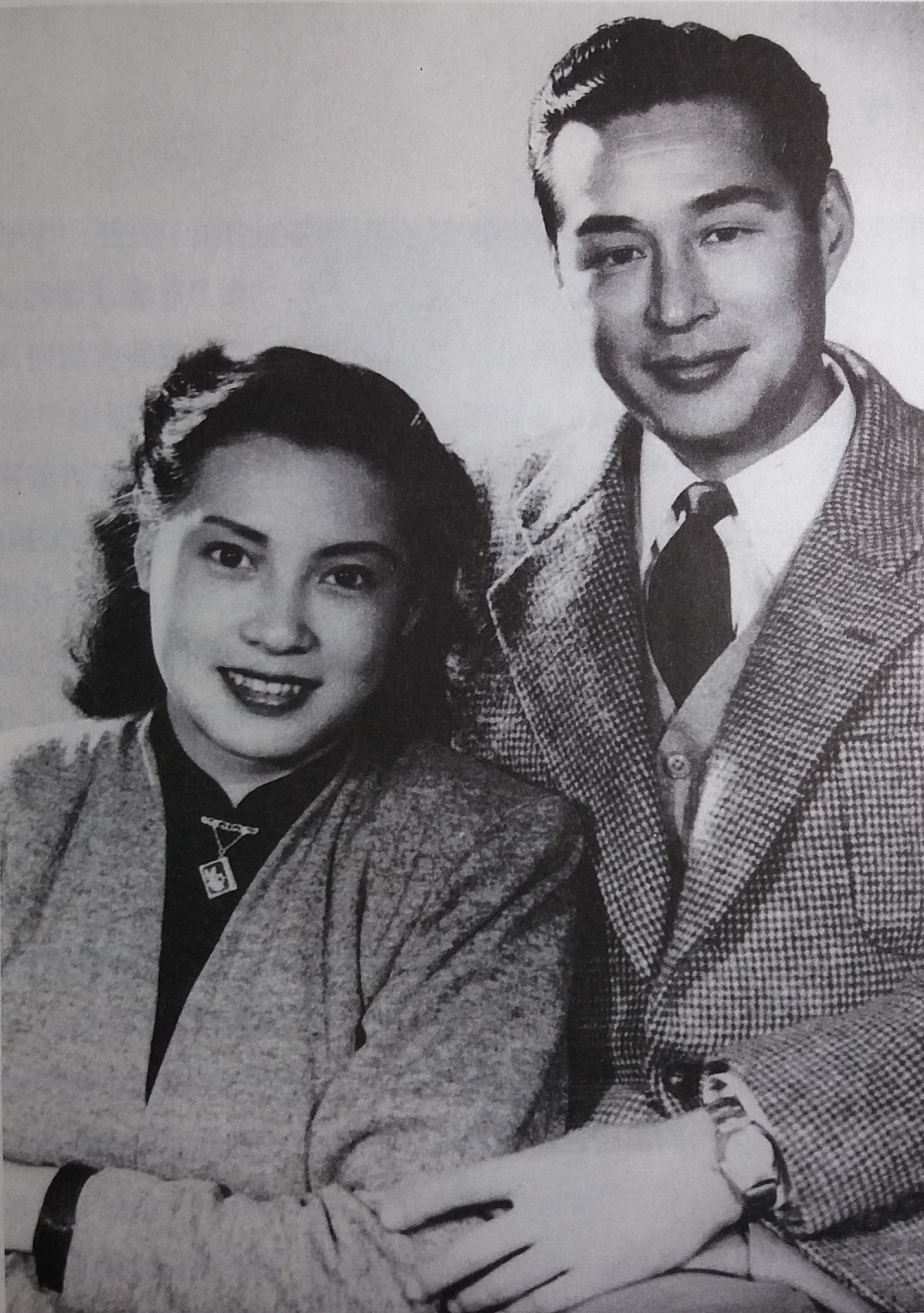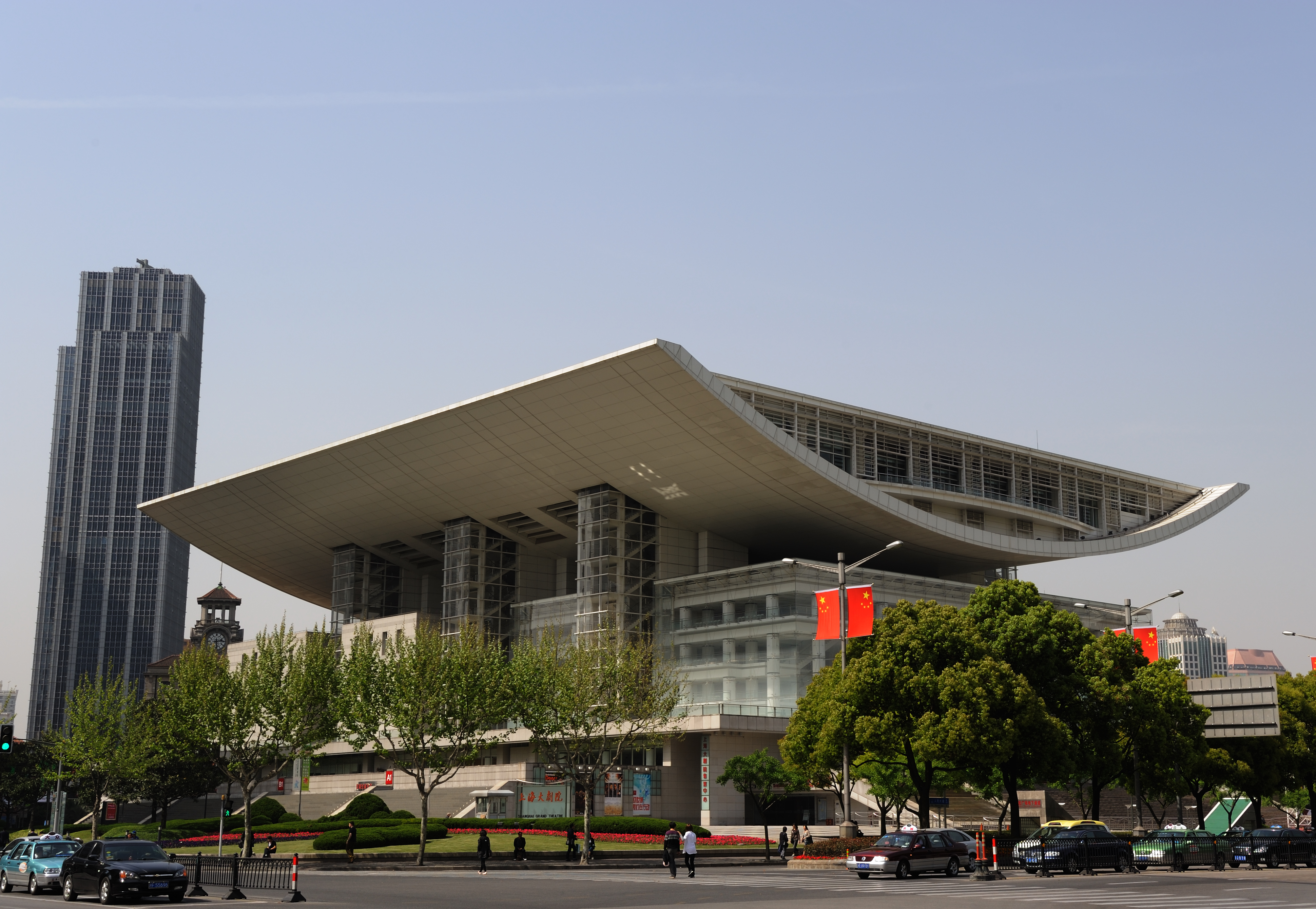|
Women Side By Side
''Women Side by Side'' (), also translated as ''Three Women'' and ''Female Fighters'', is a 1949 Chinese film directed by Chen Liting, made near the end of the Republican era. It is Chen's most famous directorial work. Denounced as a "poisonous weed" during the Cultural Revolution, the film is now considered a Chinese classic. The film is adapted from a play of the same title written by the noted leftist playwright Tian Han, who also wrote the 1932 film '' Three Modern Women''. Tian Han and Chen Liting co-wrote the screenplay. The film tells the story of three women in wartime Shanghai under Japanese occupation: an uneducated factory worker, an intellectual resistance activist, and a bourgeois new woman. In many ways it can be seen as a sequel to Cai Chusheng's 1935 film ''New Women''. Produced by the left-wing Kunlun Film Company, the film has a strong anti-Kuomintang government undertone. Plot The film is set in Japanese-occupied Shanghai in 1944. Jinmei (Shangguan Yunzhu), ... [...More Info...] [...Related Items...] OR: [Wikipedia] [Google] [Baidu] |
Chen Liting
Chen Liting (; 20 October 1910 – 27 August 2013) was a Chinese playwright, drama and film director, screenwriter, and film theorist. He was one of the most prominent film directors and screenwriters in pre-Communist China, together with Shi Dongshan, Cai Chusheng, and Zheng Junli. His most famous film was ''Women Side by Side'' (1949). Chen was abandoned as an infant, and then lost both foster parents during early childhood. Before becoming a film director, Chen worked mainly in drama. His patriotic play '' Put Down Your Whip'' was highly influential and performed countless times during the Japanese invasion of China. During the war he also made a famous staging of the play ''Qu Yuan'', and wrote one of the first Chinese books on film theory. After the early 1950s, Chen's attempts at filmmaking were repeatedly thwarted by the PRC government for political reasons. He worked as general manager of Tianma Film Studio before being imprisoned during the Cultural Revolution. After ... [...More Info...] [...Related Items...] OR: [Wikipedia] [Google] [Baidu] |
Kuomintang
The Kuomintang (KMT), also referred to as the Guomindang (GMD), the Nationalist Party of China (NPC) or the Chinese Nationalist Party (CNP), is a major political party in the Republic of China, initially on the Chinese mainland and in Taiwan after 1949. It was the sole party in China during the Republican Era from 1928 to 1949, when most of the Chinese mainland was under its control. The party retreated from the mainland to Taiwan on 7 December 1949, following its defeat in the Chinese Civil War. Chiang Kai-shek declared martial law and retained its authoritarian rule over Taiwan under the ''Dang Guo'' system until democratic reforms were enacted in the 1980s and full democratization in the 1990s. In Taiwanese politics, the KMT is the dominant party in the Pan-Blue Coalition and primarily competes with the rival Democratic Progressive Party (DPP). It is currently the largest opposition party in the Legislative Yuan. The current chairman is Eric Chu. The party originate ... [...More Info...] [...Related Items...] OR: [Wikipedia] [Google] [Baidu] |
1949 Films
The year 1949 in film involved some significant events. Top-grossing films (U.S.) The top ten 1949 released films by box office gross in North America are as follows: Events *April 26–June 21 – Ealing comedies ''Passport to Pimlico'', '' Whisky Galore!'' and ''Kind Hearts and Coronets'' are released in the UK, leading to 1949 being remembered as one of the peak years of the Ealing comedies. *November 15 – Following the prior year's Supreme Court decision in ''United States v. Paramount Pictures, Inc.'', Paramount Pictures is split into two separate companies with the creation of Paramount Pictures Corporation for production-distribution and United Paramount Theaters for the theater operations. *December 21 – Cecil B. DeMille's ''Samson and Delilah'', starring Hedy Lamarr, Victor Mature, George Sanders, Angela Lansbury, and Henry Wilcoxon, receives its televised world premiere at the Paramount and Rivoli theatres in New York City. The film opens in Los Angeles on Janu ... [...More Info...] [...Related Items...] OR: [Wikipedia] [Google] [Baidu] |
List Of Chinese Films Of The 1940s
This is a list of films produced in the Republican period and initial Communist period of China ordered by year of release in the 1940s. For an alphabetical listing of Chinese films see :Chinese films. 1940 1941 1942 1943 1944 1945 1946 1947 1948 1949 Mainland Chinese Film Production Totals See also *Cinema of China * Best 100 Chinese Motion Pictures as chosen by the 24th Hong Kong Film Awards Sources *中国影片大典 Encyclopaedia of Chinese Films. 1931-1949.9, 故事片·戏曲片. (2005). Zhong guo ying pian da dian: 1931-1949.9. Beijing: 中国电影出版社 China Movie Publishing House. *中国影片大典 Encyclopaedia of Chinese Films. 1949.10-1976, 故事片·戏曲片. (2001). Zhong guo ying pian da dian: 1949.10-1976. Beijing: 中国电影出版社 China Movie Publishing House. References External linksIMDb list of Chinese films {{DEFAULTSORT:Chinese Films Of The 1940s 1940s Films Chinese Chinese can refer to: * Something rel ... [...More Info...] [...Related Items...] OR: [Wikipedia] [Google] [Baidu] |
Bu Wancang
Bu Wancang (July 1, 1900 – December 30, 1973), also known by his English name Richard Poh, was a prolific Chinese film director and screenwriter active between the 1920s and the 1960s. He was born in Anhui. Career Originally a member of the Shanghai cinema scene, Bu worked for several studios before becoming a major director for the Mingxing Film Company. By 1931, Bu moved to Mingxing's rival, Lianhua, where he directed such films as '' Love and Duty'' (1931) and ''The Peach Girl'' (1931) (both with actress Ruan Lingyu). As the war with Japan intensified Bu made several films with subtle patriotic themes, most notably 1939's '' Mulan Joins the Army''. Once Japanese control over Shanghai was complete, however, Bu was eventually forced to make several propaganda films for the occupiers, notably ''Eternity Eternity, in common parlance, means infinite time that never ends or the quality, condition, or fact of being everlasting or eternal. Classical philosophy, however, ... [...More Info...] [...Related Items...] OR: [Wikipedia] [Google] [Baidu] |
Far Away Love
''Far Away Love'' (), also translated as ''Love of Far Away'' and ''Remote Love'', is a 1947 Chinese film directed by Chen Liting. Made during the Republican era, it was produced by the state-owned China Film No. 2 Studio, and stars prominent actors and actresses Zhao Dan, Qin Yi, and Wu Yin. The film was well received, and its premiere in Shanghai is considered a landmark event in postwar Chinese cinema. The film's screenplay is officially attributed to director Chen Liting, but according to Chen himself, it was in fact written by the leftist dramatist Xia Yan, whose authorship was concealed for political consideration. Plot After university professor Xiao Yuanxi 萧元熙 (Zhao Dan) breaks up with his girlfriend, he finds his maidservant Yu Zhen 余珍 (Qin Yi) an attractive, though unpolished, woman. He decides to transform Yu into his ideal woman. He teaches her modern etiquette and customs, and with his encouragement, Yu develops into an independent-minded modern woman. The ... [...More Info...] [...Related Items...] OR: [Wikipedia] [Google] [Baidu] |
Qin Yi
Qin Yi (; 4 February 1922 – 9 May 2022) was a Chinese actress. She gained fame for her stage performances in the war-time capital Chongqing during the Second Sino-Japanese War. After the war, she became one of China's most popular film actresses throughout the 1950s and the 1960s, and was recognised as one of the country's top four actresses. Premier Zhou Enlai called her the "most beautiful woman in China". Early life and theatre career Qin Yi was born on 4 February 1922 to a wealthy Shanghai family. Her name at birth was Qin Dehe (). She was one of the many daughters in the family. She enjoyed watching movies and Ruan Lingyu (1910–1935) was her favourite actress. After the Japanese invasion of China in 1937, Qin fled to Wuhan and became active in anti-Japanese activities. When Wuhan also fell to the Japanese, she fled to the war-time capital Chongqing in 1938, and received actor training at the China Movie Studio. She joined several theatre groups, and acted in dozens of ... [...More Info...] [...Related Items...] OR: [Wikipedia] [Google] [Baidu] |
Grand Cinema (Shanghai)
The Grand Cinema (), also known as the Grand Cinema Gallery and Grand Theatre, is an historic theatre located at 216 West Nanjing Road in Shanghai Shanghai (; , , Standard Mandarin pronunciation: ) is one of the four direct-administered municipalities of the People's Republic of China (PRC). The city is located on the southern estuary of the Yangtze River, with the Huangpu River flow ...'s Huangpu District, in China. Description and history The theatre was designed by Ladislav Hudec and completed in 1933. In 2013, ''Time Out Shanghai'' said of the venue: "Known to foreigners as 'the best cinema of the Far East', the Grand Cinema was frequented by Shanghai's glitterati in its 1930s heyday ... twas completed in 1933 and was the height of technological innovation – each seat had a translation system installed so that the Chinese audience could enjoy the foreign-language films through individual earpieces ... Now it's still great for getting a '20s and '30s Art Deco fi ... [...More Info...] [...Related Items...] OR: [Wikipedia] [Google] [Baidu] |
Crows And Sparrows
''Crows and Sparrows'' () is a 1949 Chinese film made by the left-leaning Kunlun Studios on the eve of the Communist victory, directed by Zheng Junli and scripted by Chen Baichen. Notable for its extremely critical view of corrupt Nationalist bureaucrats, the film was made as Chiang Kai-shek's Nanjing-based government was on the verge of collapse, and was not actually finished and released until after the Chinese Civil War had ended. The film takes place in Shanghai, and it revolves around a group of tenants struggling to prevent themselves from being thrown out onto the street due to a corrupt party official's attempts to sell their apartment building. The film was the winner of the 1957 Huabiao Film Awards for the “Outstanding Film” category, and starred Zhao Dan, Sun Daolin, Wu Yin and Shangguan Yunzhu in leading roles. __TOC__ Plot In the winter of 1948, the Kuomintang of China (KMT) is losing in the Huai Hai Campaign with Chinese Communist Party (CCP) during the Civil Wa ... [...More Info...] [...Related Items...] OR: [Wikipedia] [Google] [Baidu] |
Zheng Junli
Zheng Junli (December 6, 1911 – April 23, 1969) was a Chinese actor and director born in Shanghai and who rose to prominence in the golden age of Chinese Cinema. His films ''The Spring River Flows East'' and ''Crows and Sparrows'' are widely considered classics of Chinese cinema. He was severely persecuted during the Cultural Revolution and died in prison. Republic of China Zheng was born into an impoverished family, often harassed by creditors. At early ages, he showed great interest in reading and art performing. He left junior high at second grade and entered "Nanguo Art School" led by Tian Han and studied play acting. During the 1930s, Zheng was an actor under contract with Lianhua Film Company. While with Lianhua, he played a number of roles, notably as the love-interest Yu Haichou in the film ''New Women'' opposite Ruan Lingyu. After the Sino-Japanese War Zheng began to focus his efforts on directing, most notably with ''The Spring River Flows East'' (co-directed with ... [...More Info...] [...Related Items...] OR: [Wikipedia] [Google] [Baidu] |
2013 Shanghai International Film Festival
The 2013 Shanghai International Film Festival was th16thsuch festival devoted to international cinema held in Shanghai, China. International Jury The members of the jury for the Golden Goblet Award were: * Tom Hooper (UK; president of the jur* Michel Ciment (French critic) * Chris Kraus (German director) * Khosro Masoumi (Iranian director) * Jiří Menzel (Czech director, theater director and actor) * Ning Hao (Chinese director) * Yu Nan (Chinese actress) Winners * Best Feature Film: ''The Major'', by Yury Bykov (Russi* Jury Grand Prix: ''Reliance "Förtrolighete', by William Olsson (Sweden) * Best Director: Yury Bykov for ''The Major'' * Best Actress: Crystal Lee in '' Unbeatable (film), Unbeatable'' (China) directed by Dante Lam * Best Actor: Nick Cheung in '' Unbeatable (film), Unbeatable'' (China) directed by Dante Lam * Best Screenplay: Angus MacLachlan for ''Reliance'' (Sweden) directed by William Olsson * Best Cinematography: Vachan Sharma/Paul Blomgren Dovan for ''Re ... [...More Info...] [...Related Items...] OR: [Wikipedia] [Google] [Baidu] |
Chinese Civil War
The Chinese Civil War was fought between the Kuomintang-led government of the Republic of China and forces of the Chinese Communist Party, continuing intermittently since 1 August 1927 until 7 December 1949 with a Communist victory on mainland China. The war is generally divided into two phases with an interlude: from August 1927 to 1937, the KMT-CCP Alliance collapsed during the Northern Expedition, and the Nationalists controlled most of China. From 1937 to 1945, hostilities were mostly put on hold as the Second United Front fought the Japanese invasion of China with eventual help from the Allies of World War II, but even then co-operation between the KMT and CCP was minimal and armed clashes between them were common. Exacerbating the divisions within China further was that a puppet government, sponsored by Japan and nominally led by Wang Jingwei, was set up to nominally govern the parts of China under Japanese occupation. The civil war resumed as soon as it bec ... [...More Info...] [...Related Items...] OR: [Wikipedia] [Google] [Baidu] |





